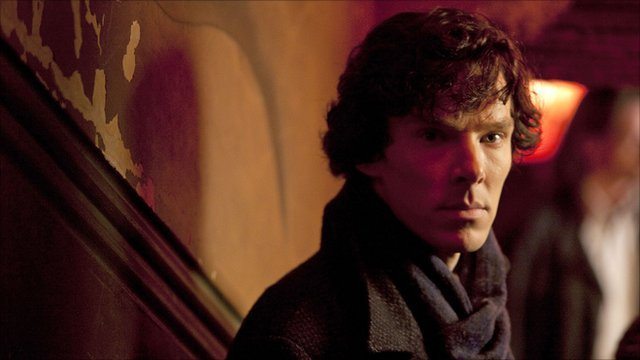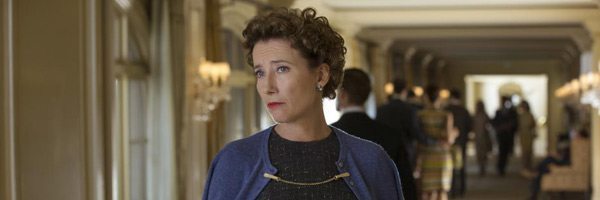2013: The year the Brits went bust?
While many British names will crop up in the announcements at the BAFTAs and Oscars ceremonies this year, not many of the actors they belong to will have earned their reward for service to a British story or in the pay of a British financier. On one hand, I will watch the broadcasts proudly as some talented Brits receive some much-deserved accolades; on the other, I will bemoan the overall absence of Britishness from cinema at large in the year just passed. I get the distinct feeling that The World’s End might be the only film that will ever be made with Doombar on draught in its mise-en-scéne. The multiplex feels more like a saloon bar serving only Budweiser than it does a friendly local.
It is true that British filmmaking has enjoyed great success at the Academy Awards in recent years. In 2009, Danny Boyle claimed the Best Director gong for his work on Slumdog Millionaire, which took Best Picture. Tom Hooper and his film The King’s Speech achieved this same feat in 2011. But perhaps no year in recent memory saw quite so much British involvement in the production of award-nominated films as 2013 did. After all, many of the nominees in the Oscars’ Best Picture category are also nominees for BAFTA’s Outstanding British Film award.
The correspondence between the two lists illustrates the impressive role British production companies played in making some of the year’s best films, ranging from Gravity to Philomena. Even more attention was garnered by the triumphs of British actors in internationally successful lead roles. Beyond the strong number of Oscar nominated performances, the likes of Idris Elba, Benedict Cumberbatch and Martin Freeman also won plaudits for major Hollywood lead roles that will go overlooked at the awards.
The British accent is so often found marginalised thus, if not to fantasy then to the floppy rom-com or stuffy period drama
As British as these actors are by origin, however, just how British have their successes in 2013 been? In most cases, Brits have adopted accents to portray non-Brits: Elba and Naomie Harris as South Africans (Mandela: The Long Walk to Freedom); Chiwetel Ejiofor and Cate Blanchett as New Yorkers (12 Years a Slave and Blue Jasmine); Cumberbatch, famous for his portrayal of popular culture’s most resoundingly ‘British’ icon Sherlock Holmes, found himself down under (The Fifth Estate), in the deep south (12 Years a Slave) and in deep space (Star Trek Into Darkness) but never in his home territory. If UK actors were to be found using native accents in 2013’s major releases, more often than not it was in roles as customarily reserved for the British as Cumberbatch’s Khan (the stereotypical English villain); to serve as the exotic foreign other in an American context (Emma Thompson in Saving Mr. Banks) or provide the air of medieval old-worldliness that British accents typically lend to realms of fantasy (The Hobbit: The Desolation of Smaug, Thor: The Dark World). The British accent is so often found marginalised thus, if not to fantasy then to the floppy rom-com or stuffy period drama. In the successes of Harry Potter, Jane Austen, Hugh Grant and Roger Moore, there’s more of what constitutes the Hollywood imagination of Britishness on offer than authentic cultural representation.
While other years have seen refreshing deviations from this trend – Edgar Wright’s work with Simon Pegg, Richard Ayoade’s Submarine, Shane Meadows’s This is England and everything directed by Gurinder Chadha spring to mind – it is still an event in the United Kingdom to go to the cinema and watch a film that feels like it came from the country it’s being shown to. While there were some notable exceptions – Filth, Philomena – it seemed to me that the majority of 2013’s British films commodified themselves to some degree through the casting of Americans: About Time, one of 2013’s most commercially successful UK-produced movies, placed American actress Rachel McAdams at the centre of their promotional appeal. The implication is, then, that not only are the Hollywood studios unenthusiastic about British protagonists on the big screen, production companies and audiences over here are just as favourable to characters and stories from other lands.
The British talents behind 12 Years a Slave might well take the spoils at the Oscars this year, but if the tale of American slavery does end up winning Best Picture, the statuette will be going on a mantelpiece somewhere in Los Angeles. Whether the backing comes from Brad Pitt or Harvey Weinstein (The King’s Speech), it seems to be a recent trend in successful cinema that British talent only has Academy Award-winning potential with American money and interest behind it. Given the persistent popularity of EastEnders and Coronation Street, surely there is some kind of market out there for truly ‘British’ storytelling on the big screen to match the demand for it on the small one?


Comments